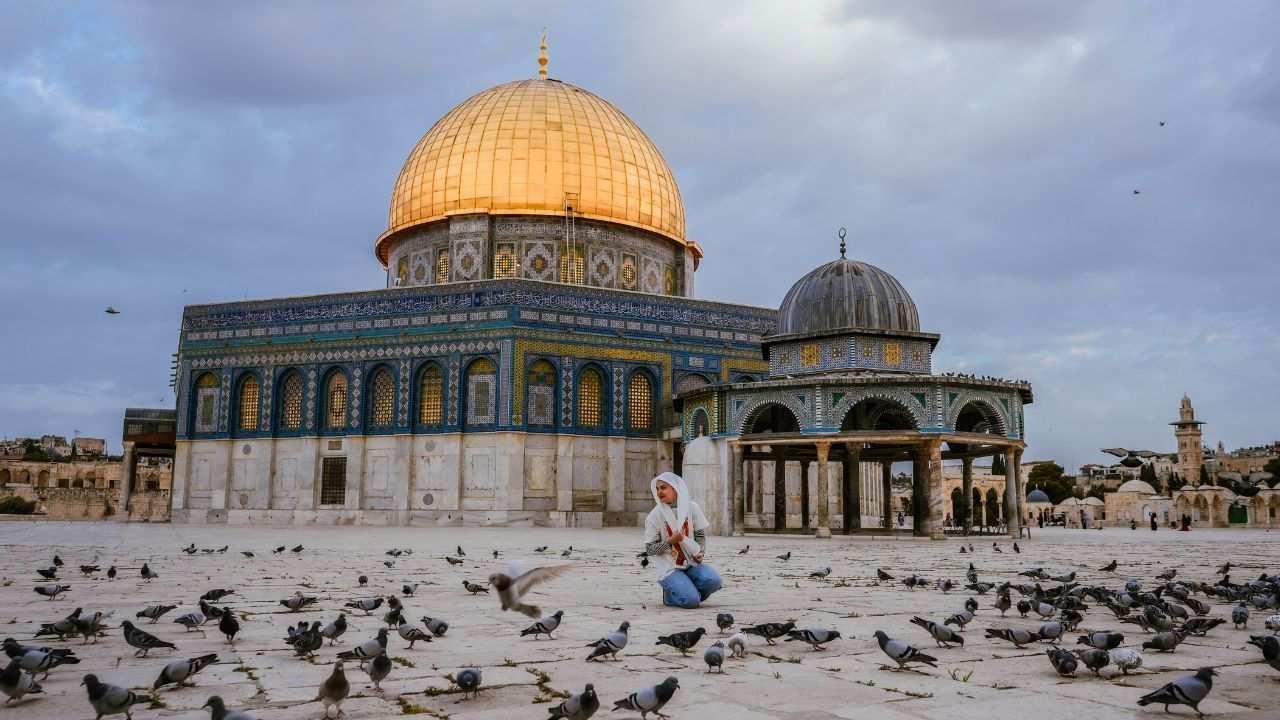
Post by : Samir Nasser
Masjid Al-Aqsa, situated in Jerusalem, stands as one of the most important religious sites in Islam. For centuries, it has served as a center for spiritual devotion, scholarly discourse, and historical relevance. Known as the “Farthest Mosque” in the Quran, Al-Aqsa is cherished not just for its sacred status but also for its ties to pivotal moments in Islamic history. Muslims around the globe acknowledge its deep spiritual and historical significance, rendering it a symbol of faith, legacy, and resilience.
A component of the larger Al-Haram Al-Sharif (Noble Sanctuary), Masjid Al-Aqsa is historically established shortly after the Night Journey (Isra and Mi’raj) of the Prophet Muhammad (PBUH), who traveled from Masjid Al-Haram in Mecca to this revered site in Jerusalem.
The mosque has observed the rise and decline of various empires, including the Umayyads, Abbasids, and Ottomans, each contributing to its architectural grandeur, scholarly importance, and religious significance.
The Night Journey (Isra and Mi’raj)
Referencing Surah Al-Isra (17:1), the Quran emphasizes the sanctity of Masjid Al-Aqsa: “Glory to Him who made His servant travel by night from the Sacred Mosque to the Farthest Mosque.” This event is commemorated annually and carries profound spiritual meaning for the Muslim community, signifying the miraculous night ascension of Prophet Muhammad (PBUH), thus underscoring the mosque’s unique religious stature.
First Qibla in Islam
Before the Qibla was redirected to Masjid Al-Haram in Mecca, the original direction of prayer was towards Masjid Al-Aqsa, highlighting its importance in the early days of Islamic practice and spiritual heritage.
Dome of the Rock and Adjacent Structures
Often confused with Al-Aqsa, the Dome of the Rock also resides within the same compound. The Al-Aqsa Mosque features unique silver-grey domes, graceful arches, and intricate mosaics that showcase Islamic artistry. This architecture symbolizes centuries of cultural progression and the dedication of Muslim rulers who have maintained and enhanced the mosque over the ages.
A Hub for Knowledge and Education
Historically, Masjid Al-Aqsa has functioned as a prominent center for Islamic education. Scholars from throughout the Muslim world would gather to study theology, jurisprudence, and the Quran. This legacy of scholarship endures, as the mosque continues to embody knowledge, wisdom, and religious enlightenment.
Influence During Early Islamic Eras
During the Rashidun and Umayyad reigns, Masjid Al-Aqsa emerged as a central site for governance, education, and spiritual life, receiving support from caliphs and leaders who preserved its significance as an emblem of Islamic devotion and authority.
Impact of the Crusader Period
The mosque faced severe transitions during the Crusades when it was temporarily converted into a church but was subsequently restored to a mosque following the Muslim reconquest. This chapter highlights the mosque’s enduring spiritual essence and resilience.
Although not part of the Hajj, visiting Masjid Al-Aqsa is deeply cherished in Islam. Pilgrims frequent the mosque to pray, recite Quranic verses, and ponder its storied past. Its profound ties to Islamic spirituality continue to inspire millions today.
Currently, Masjid Al-Aqsa embodies a symbol of faith and unity for Muslims across the globe. It remains a vital site for worship, education, and cultural preservation. Despite political and social challenges in Jerusalem, the mosque transcends mere physical presence, symbolizing the commitment and devotion of the Muslim community.
Conservation Efforts
Various organizations and local communities are actively engaged in preserving the structural integrity, historical artifacts, and cultural heritage of Masjid Al-Aqsa. Ensuring its maintenance allows future generations to partake in its spiritual and historical legacy.
Islam’s third holiest site with unparalleled spiritual importance.
The first Qibla for Muslims prior to Mecca's recognition.
Associated with the extraordinary Night Journey of Prophet Muhammad (PBUH).
Historically a center for scholarship, governance, and culture.
Continuously signifies faith, unity, and Islamic heritage in modern times.
This article serves educational and informational purposes only. The historical and religious content is based on Islamic texts and scholarly references. Readers are encouraged to verify facts independently and follow local guidelines when visiting sacred sites. The author and publication bear no responsibility for travel, legal, or religious matters regarding Masjid Al-Aqsa.










NBA Friday Recap: Powerhouse Wins for Miami, LA, Milwaukee, and Clippers
Miami, LA Lakers, Milwaukee, and Clippers triumphed in a thrilling NBA Friday, showcasing standout p

Doncic Shines with 49 Points in Lakers' 128-110 Victory over Timberwolves
Luka Doncic dazzles with 49 points as the Lakers secure a 128-110 win against the Timberwolves, show

Kings Triumph Over Jazz 105-104 with Last-Minute Sabonis Effort
The Sacramento Kings edged out the Utah Jazz 105-104, with Domantas Sabonis making the decisive shot

Argentina's Friendly Match Against India Delayed, New Date to be Announced
The friendly match between Argentina and India in Kochi has been postponed due to FIFA approval dela

Rohit and Kohli Conclude ODI Journeys in Australia with a Victory
Rohit Sharma and Virat Kohli bid adieu to Australian ODIs with a final win, forming a 168-run partne

George Russell's Wrestling Mask Antics at Mexican Grand Prix
George Russell donned a wrestling mask to enjoy the Mexican Grand Prix from the stands, providing a